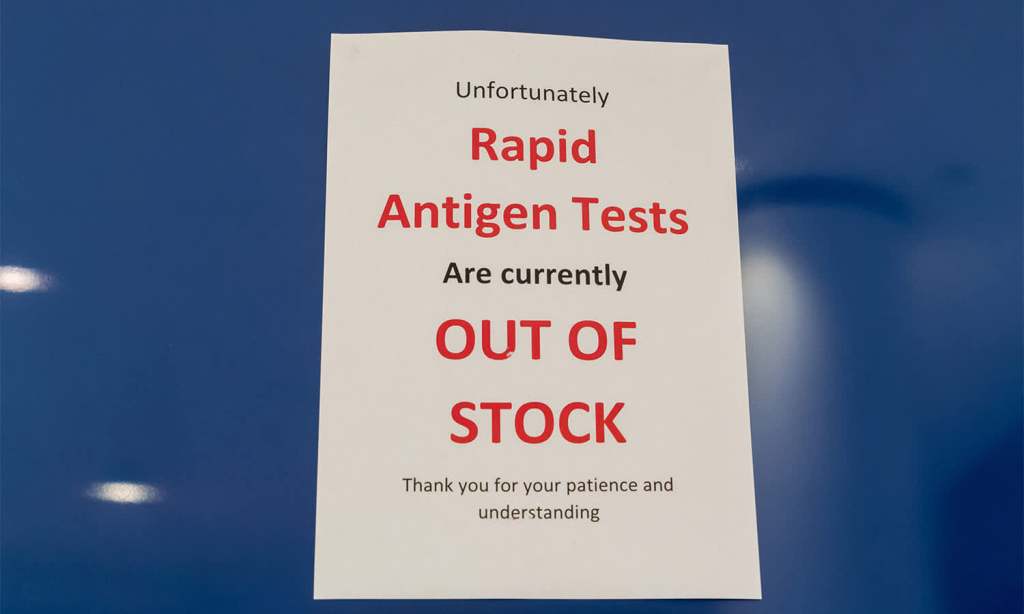As Australians still scramble to buy rapid antigen tests (RATs) across the country, scammers are apparently using social media to trick people into parting with their cash for RATs that don’t exist.
According to the consumer information site Finder, many Aussies are falling victim to these scams as they are desperate and unable to source RATs locally.
Finder monitors the pharmacies, online stockists and retailers where you can source RATs online in real-time, with a new survey revealing that demand for the at-home tests has doubled in the past month alone.
The Australian Competition and Consumer Commission (ACCC) has received over 6,415 scam reports mentioning coronavirus, with more than $9.8 million in reported losses since the outbreak of COVID-19.
One current scam spreading on Facebook offers people the opportunity to ‘bulk buy’ RATs by paying in advance to secure the order. The tests, obviously, are not real and will never arrive.
Kate Browne, a personal finance expert at Finder, has said that “Australians should be wary of any private offers to buy tests online”.
“If the offer seems too good to be true, it probably is,” she said. “Don’t give your personal information to anyone that approaches you online who you don’t know. Your best bet, she said, is to source a RAT online from a reputable distributor or try and track one down in person using the online tools available to source one. If you do see a scam operating, report it to www.scamwatch.gov.au and be sure to call it out online to protect others.”
Why Can’t We Use the RATs Made Here?
It may come as a shock to learn that Australia actually produces more than 100,000 rapid antigen tests a day which is then shipped to the US or Europe.
Reported in the Brisbane Times at the end of last year, Queensland company Ellume has been contracted by the US government to supply 8.5 million tests for the US market this year and is said to be ramping up production to over 200,000 a day to meet that demand.
It seems like a particularly Australian dilemma to be making a product we’re badly in need of at home for someone else, however, the issue is actually not with the contractor.
The Theraputic Goods Administration, which rules on what medical equipment can and can’t be used in the country, has yet to approve the types of tests that Ellume is making.
Currently, the TGA has affirmed 22 different kinds of at-home test kits for the Australian market, only one of which is made overseas. 16 of these are made in China, two in the US, and the rest are from Germany, South Korea, and Singapore.
Having a non-domestic supply of RATs is obviously a problem when it comes to access, as countries like China, where the Omicron outbreak is worsening, could easily decide that they need the RATs more than we do.
Ellume is just one of several companies in Australia making rapid antigen tests, most of which cannot be sold here. Chief executive of AnteoTech, Derek Thompson, said that the current lack of supply is down to a lack of planning from the Australian government.
“We obviously could have poured a lot of money into the Australian market but, when we looked at it, the governments had a stance or policy that they weren’t going to use RATs,” Thomson explained to the ABC.
“There was really no indication that the governments were going to change their policies or stance around the use of RATs.”
Despite the tests being made by AnteoTech having been approved for use in the European Union months ago, the TGA is still deliberating. Our testing procedures for medical equipment are some of the toughest in the world and, as it stands, the companies making the tests are still being asked for more information about their products.
It could therefore be a while yet until those tests are approved and we can actually start using products made here to address the domestic shortage.
Read more stories from The Latch and subscribe to our email newsletter.







